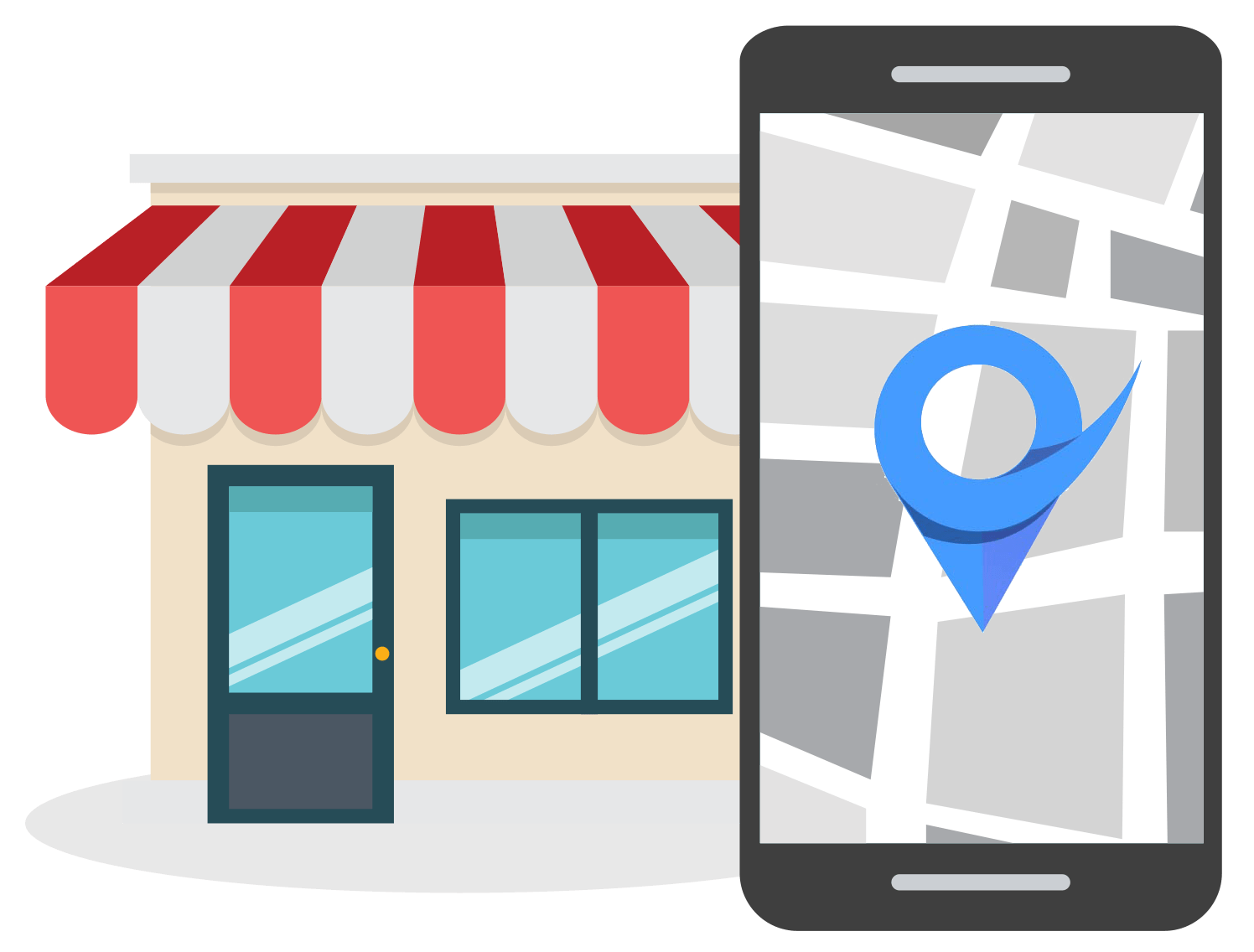SEO Basics That Every Beginner Should Master
Mar 15, 2023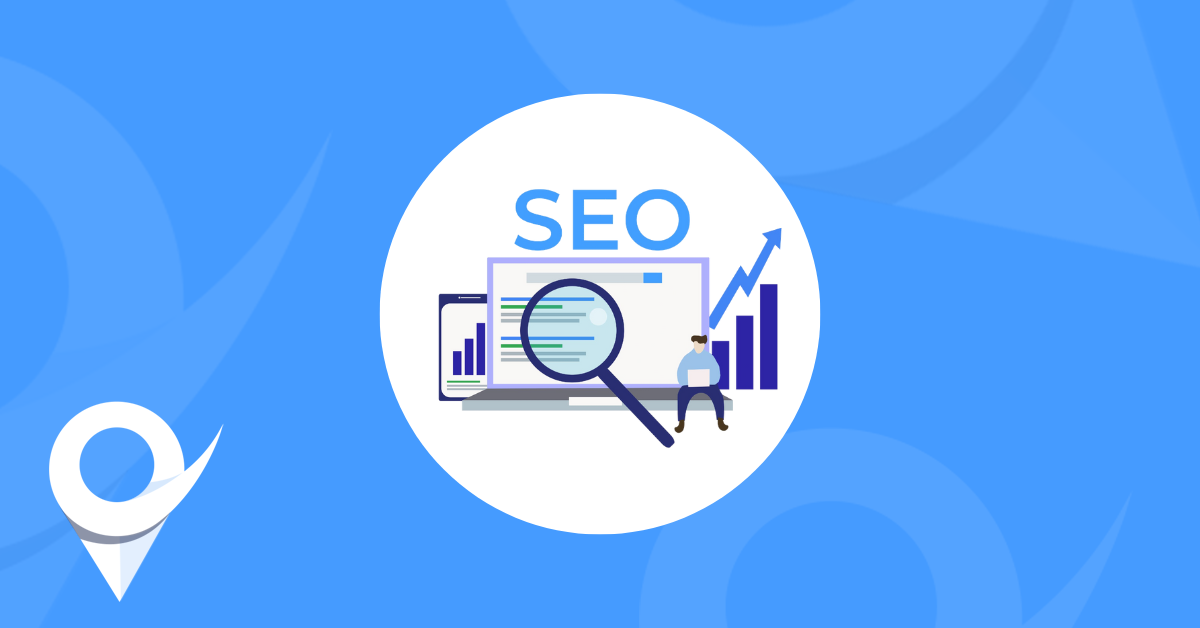
Table of Contents
Understanding search engines
What is a search engine?
How do search engines work?
Why is SEO important for businesses?
On-page SEO basics
Technical SEO basics
Off-page SEO basics
Measuring SEO success
Conclusion
In today's digital world, having a website is no longer enough to reach your desired audience. With millions of websites competing for attention, it's essential that yours appears at the top of search engine results.
Search Engine Optimization (SEO) is the practice of optimizing your site to rank higher on engines such as Google, Bing, and Yahoo.
While SEO may seem intimidating for beginners, understanding its basics will guarantee that your website is visible and easily accessible by visitors.
In this blog post, we'll cover some essential SEO fundamentals every beginner should learn.
Understanding Search Engines
What is a Search Engine?
Search engines are software programs that enable users to find information online by entering keywords or phrases.
When a user submits their query, the engine returns a list of webpages relevant to that inquiry, ranked according to factors like website content, backlinks, user experience, and more.
Popular search engines include Google, Bing, Yahoo, and DuckDuckGo.
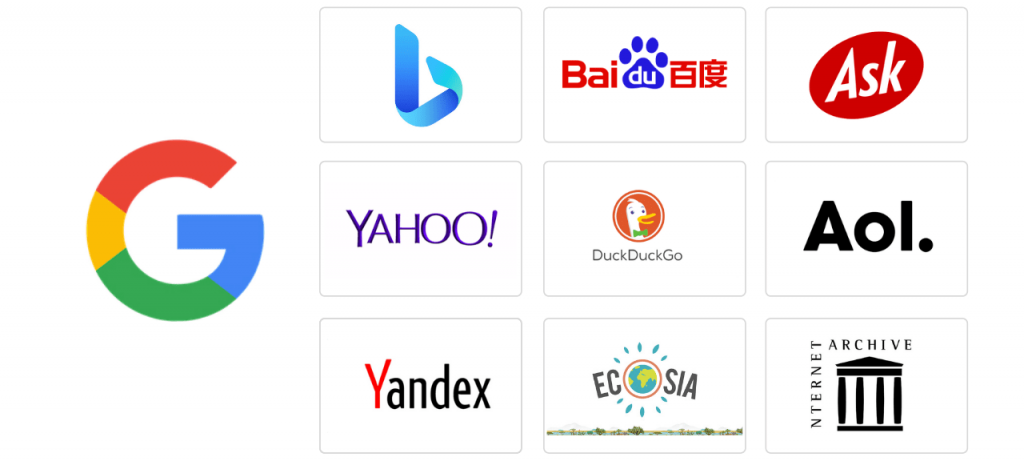
Image source: Reliablesoft
Google commands the largest share of the global search engine market share with over 92% share. Bing and Yahoo, while much smaller than Google, remain popular choices for millions worldwide.
DuckDuckGo is a more recent option that prioritizes user privacy by not tracking users' search history. Furthermore, there are other niche-focused engines such as academic publications that serve specific niches better.
How do Search Engines Work?
Search engines employ complex algorithms to crawl and index content on the web.
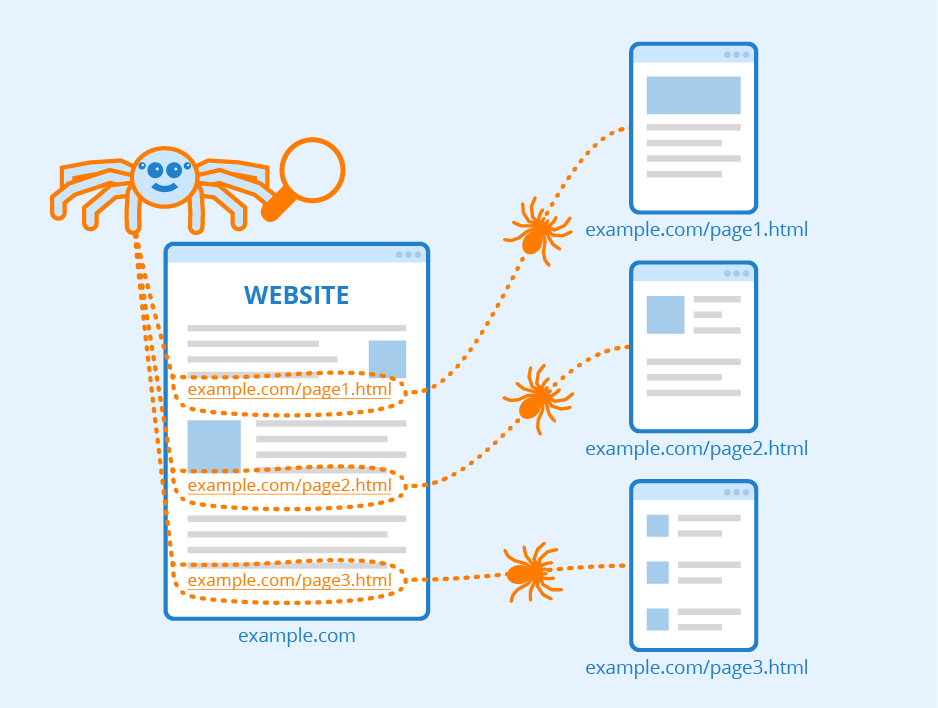
Image source: SEObility
They begin by gathering data from all websites they can locate, then use that information to decide how relevant a given website is for certain keywords.
When ranking sites in search results, search engines take into account a site's backlinks, page titles, headings, quality of content, and loading speed - plus user engagement metrics like clicks or page views so users get accurate answers to their queries.
Why is SEO Important for Businesses?
Search Engine Optimization (SEO) is an essential tool for businesses, as it increases website visibility on search engine result pages.
Optimizing a website for search engine algorithms can increase its chances of appearing at the top of results and reaching new customers.
SEO allows businesses to target specific keywords and topics so they can more efficiently reach their desired audiences. With techniques like keyword research, content optimization, and link building, businesses can boost their online visibility and establish a robust web presence.
On-Page SEO Basics
What is On-Page SEO?
On-page optimization focuses on elements that directly influence the content and structure of a website, such as meta tags, titles, descriptions, headings, images, and more.
Optimizing these on-page elements can help search engines understand the relevance and usefulness of a web page to a user's search query, and increase the likelihood of the page appearing higher in search results.
On-page optimization is a continuous process, as search engines' algorithms and users' search behaviors are constantly changing. It requires a deep understanding of the target audience, keyword research, and technical skills to optimize the code and content of a website effectively.
Overall, on-page optimization is a critical part of a holistic SEO strategy that can help businesses achieve higher visibility, increased traffic, and better engagement from their target audience.
Master Keyword Research
Effective keyword research is a critical part of any successful SEO strategy.
Through keyword research, businesses can identify the words and phrases that their target audience is using when searching for products or services.
By understanding how potential customers search, businesses can create content around these keywords and phrases, helping them to rank higher in search engine results pages and reach more customers.
When conducting keyword research, businesses should look at things such as the volume of searches for particular keywords, competition levels, and relevancy to their product or service offering.
Title Tag Optimization
The page title tag is an essential HTML component that informs search engines and site visitors about a page's content. It is visible at the top of the browser window and on SERPs.
An effective title tag for SEO purposes should be succinct, informative, and include relevant keywords. Here are some tips for crafting optimized title tags:
- Be concise: To ensure the title tag appears in full on search engines, stick to a character limit of 60.
- Use relevant keywords: Incorporating relevant keywords in the title tag can help indicate to search engines the content's relevance to a user's query.
- Be descriptive: An ideal title tag should accurately describe the content of the page and entice users to visit.
- Avoid keyword overuse: While using appropriate keywords in the title tag is crucial, avoid overusing them, as search engines can flag them as spammy.
- Be original: Each page of the website should have a unique title tag that appropriately reflects the content.
Optimizing the page title tag helps improve website pages' CTR and relevance on the SERPs. By developing effective and SEO-friendly title tags, businesses can boost their visibility and attract more traffic to their website.
Use of Heading Tags
Heading tags, such as H2 and H3, are HTML elements used to structure web page content.
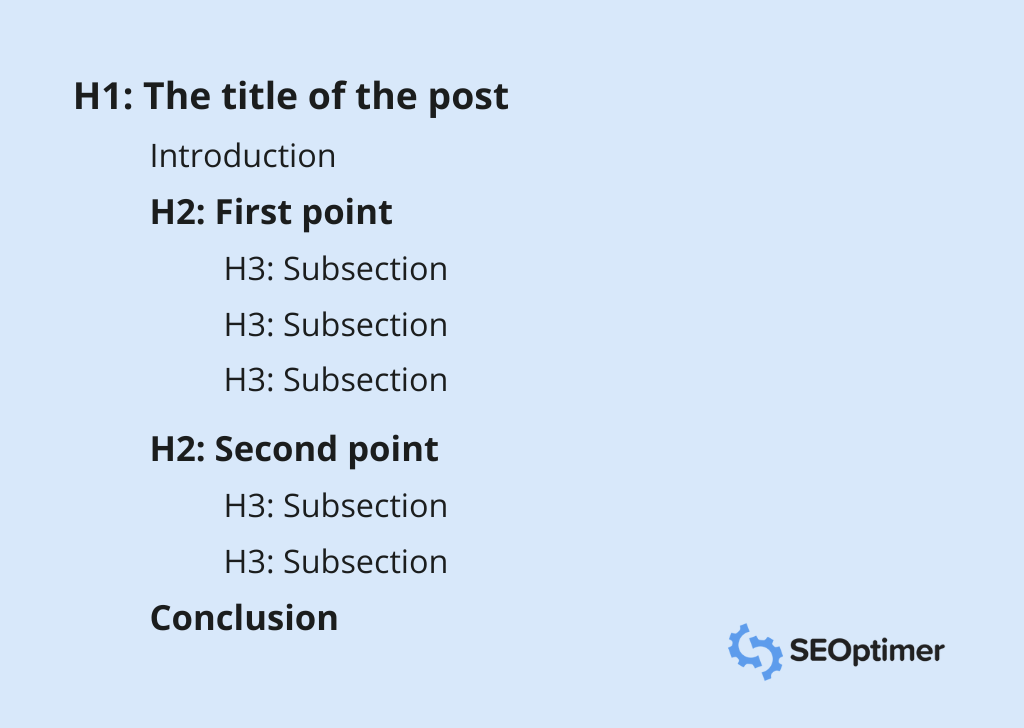
They play an essential role in organizing it for website visitors and search engine crawlers alike. H2 tags should be utilized for main section headings, while H3 tags can be utilized for subsections. Here's how to optimize heading tags for SEO purposes:
- Use Heading Tags In Sequence: To aid search engines and users in understanding the hierarchy of content, headings should be used sequentially, beginning with H1 for the main title and moving down through H2 and H3 for subsections.
- Include Relevant Keywords: Incorporating relevant keywords into the headings can signal to search engines that a page is pertinent to a user's query.
- Maintain clarity in headings: While headings should accurately convey the content of a page, they should remain succinct and to the point.
- Avoid Overusing Heading Tags: Using too many heading tags in an inconsistent order can confuse search engines and negatively affect a page's ranking.
Properly using heading tags on a web page can enhance its readability, making it simpler for users to comprehend and navigate. By following these simple guidelines, businesses can effectively utilize heading tags in order to enhance both user experience and SEO performance on their websites.
Create Content That is Optimized for Search Engines
Creating website content that's optimized for search engines is critical to enhancing a website's visibility and search engine ranking. Here are some essential tips to ensure your website content is SEO-optimized:
- Use keywords tactfully: Incorporate relevant keywords into your content naturally, avoiding the overuse of keywords.
- Produce quality content: Your website content should be informative, engaging, and relevant to your target audience. This will keep users interested and increase website traffic.
- Optimize meta descriptions: Your meta descriptions should be brief, compelling, and contain relevant keywords to increase click-through rates.
- Use internal and external links: Incorporate internal links to other pages on your website and external links to high-authority websites to establish your website's authority in your industry.
Create Logical URL Structures
A logical URL structure is crucial for optimizing search engines and user experience. URLs should be simple, informative, and relevant to the content of the page.
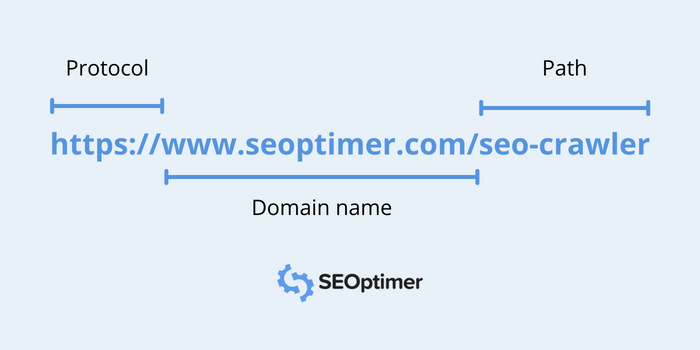
Follow these tips for creating SEO-friendly URLs:
- Keep URLs short and easy to read: Avoid long and complicated URLs, which may confuse both search engines and users.
- Use hyphens for word separation: Hyphens are the preferred method for separating words in URLs.
- Include relevant keywords: Use appropriate keywords in URLs to indicate the page's content to search engines and users.
- Organize URLs hierarchically: Arrange your URLs hierarchically to reflect the structure of your website. This approach aids users and search engines in navigating your site and locating relevant information.
- Use lowercase letters: URLs are case-sensitive, so utilize lowercase letters to avoid duplicate content issues.
By adhering to the aforementioned guidelines, you can construct logical and SEO-friendly URL structures, enhancing website visibility, user experience, and search engine rankings.
Technical SEO Basics
What is Technical SEO?
Technical SEO is the process of making sure a website meets a certain technical standard that allows it to be easily discovered, indexed, and crawled by search engines.
This involves optimizing things such as page speed and mobile responsiveness, website structure, broken links, server performance, sitemaps, robots.txt files, and more.
By following best practices for technical SEO, websites can ensure their content remains undetectable by AI detection tools while also becoming more visible in search engine results pages (SERPs).
Indexability
Indexability is the ability of search engines to discover and include web pages in their index. They use sophisticated algorithms to scan pages, collect information, and add them to their database.
Once indexed, pages are eligible to appear in search engine result pages (SERPs) for relevant queries.
To determine if your website has been indexed by search engines, perform a site:yourdomain.com search in Google. If the results show that some of your pages have been included in their index, this indicates that some of them may already be visible on search engine results.
Webmaster tools like Google Search Console can also be utilized to monitor the indexability of your website and detect any indexation issues.
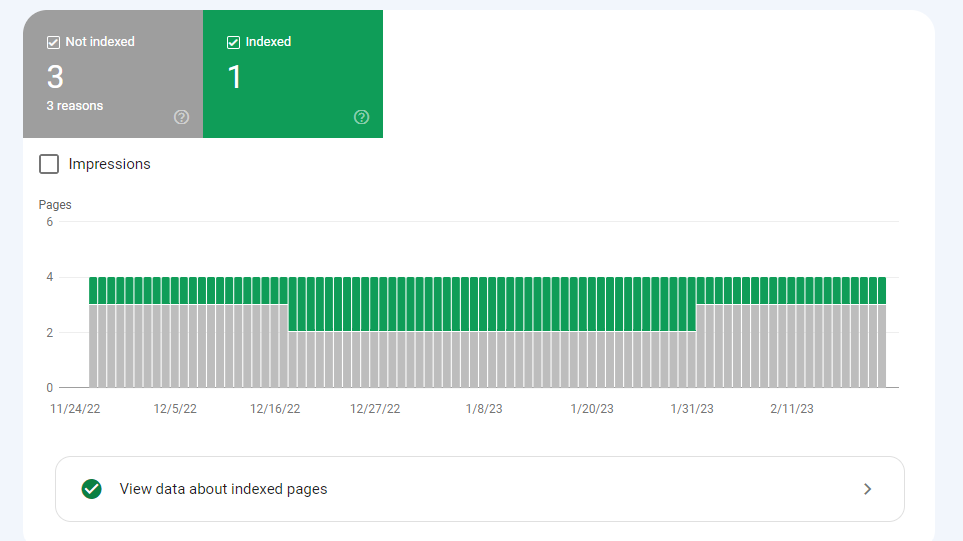
It is essential that all pages of your website are indexable by search engines.
Factors like broken links, missing metadata, duplicate content, and poor website architecture can negatively affect indexability.
Regularly checking the indexability of your website and rectifying any issues will help guarantee that users can view and access it easily.
HTTPS
HTTPS is an acronym for Hypertext Transfer Protocol Secure, and it is a secure version of the standard HTTP protocol.
HTTPS helps protect website data, as well as its users, by encrypting the communications between the two parties.
This means that as long as you access a website using HTTPS all communications with your web browser will be encrypted, offering an added layer of security.

Image source: Xcart
For SEO purposes, using HTTPS can help to boost SEO rankings because Google has stated that they prefer secure websites over unsecured ones.
Ensure That Your Site is Mobile-Friendly
Mobile-friendly websites are essential for SEO rankings. With the rapid increase in mobile usage, it has become increasingly important to make sure that your website is optimized for mobile devices.
Most website builders and content management systems generate webpages that are already mobile-friendly, but other sites may need additional customization or optimization for mobile screens.
Having a mobile-friendly website can help improve your SEO rankings as search engine crawlers prioritize sites that are optimized for mobile devices.
A well-built mobile version of your website can result in improved user experience, higher conversions, and better ranking results due to increased visibility in SERPs.
Build a Site That has a Fast Loading Speed
PageSpeed is an important factor in SEO rankings. Slow loading times can lower the user experience and lead to an overall decrease in organic ranking potential.

To improve your website's loading speed, you can implement techniques such as minifying HTML, CSS, and JavaScript code; optimizing images; using caching mechanisms; reducing server response time; and utilizing content delivery networks (CDNs).
Additionally, you can use tools such as Google PageSpeed Insights or GTmetrix to analyze your website's performance and identify areas for improvement.
Off-Page SEO Basics
What is Off-Page SEO?
Off-page SEO refers to the techniques and methods used to enhance a website's visibility and reputation through the acquisition of backlinks from other reputable websites.
This involves the implementation of link-building strategies such as guest posting, link outreach, and other forms of promotion outside the website.
Off-page optimization plays a crucial role in SEO as it enables search engines to assess a website's relevance and value by examining the quality and quantity of links directed toward it.
This helps to establish a website's authority and credibility, ultimately leading to improved search engine rankings and greater organic traffic.
Master Link-Building
Link-building is an essential part of a successful search engine optimization (SEO) strategy. Building links help increase the authority and relevance of your website, thus resulting in higher rankings in SERPs.
There are four main methods for link-building:
- Guest Posting – This method involves creating content that other websites can then use as a resource, while also providing a link back to your website.
- Link Outreach – This strategy entails reaching out to people who have written blog posts or articles related to your industry and asking them to link to your site if it is appropriate for their readership.
- Unlinked Brand Mentions – This technique involves tracking down brand mentions on other websites that do not include links, then politely contacting the site’s owner and requesting that a link be added.
- Broken Link Building – Often referred to as “link reclamation” this technique involves finding broken links on external sites pointing to non-existing resources, then offering content from your own website as a viable substitute.
Measuring SEO Success
The measurement of SEO success is a critical aspect of determining the effectiveness of a website's search engine optimization efforts.
This can be accomplished by analyzing metrics such as keyword rankings, organic traffic, and goal conversions that originate from organic traffic.
Monitoring and analyzing these metrics can provide valuable insights into the efficacy of your website's SEO campaign. It helps in identifying areas that require improvement and optimization and enables you to refine your approach by using data-driven insights.
Therefore, it is important to continually measure and analyze the success of your SEO campaign to ensure that it is effective and achieves the desired results.
Conclusion
To conclude, SEO is a complex but rewarding endeavor that can have a significant impact on search engine rankings and organic traffic. While mastering the basics of SEO may seem daunting at first, with a dedicated effort and knowledge of best practices, anyone can create an effective SEO strategy.



